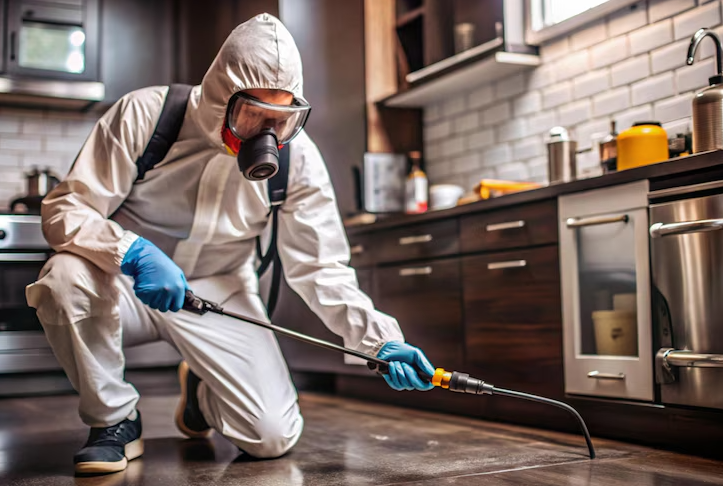Pests can be a real nuisance, invading our homes, contaminating food, and sometimes even causing structural damage. Traditionally, people have turned to chemical pesticides to eliminate infestations, but these solutions often come with harmful side effects for both humans and the environment. Fortunately, eco-friendly pest control methods offer a safer, more sustainable way to manage unwanted critters while keeping your home toxin-free.
Why Choose Eco-Friendly Pest Control?
Conventional pest control relies heavily on chemical-based pesticides that can linger in the air, seep into the soil, and contaminate water sources. These chemicals may also pose health risks, leading to respiratory issues, skin irritations, and even long-term conditions due to prolonged exposure.
Eco-friendly pest control, on the other hand, focuses on non-toxic, sustainable solutions that minimize harm to humans, pets, and beneficial insects like bees and butterflies. By opting for greener alternatives, you not only protect your family but also contribute to a healthier environment.
Practical Eco-Friendly Pest Control Methods
There are several natural ways to manage pests without resorting to harmful chemicals. Here are some effective eco-friendly solutions:
1. Preventative Measures
The best way to control pests is to prevent them from entering your home in the first place. Here’s how:
- Seal Entry Points: Cracks, gaps, and holes in walls, windows, and doors provide easy access for pests. Seal them with caulk or weather stripping.
- Proper Food Storage: Keep food in airtight containers and clean up crumbs immediately to avoid attracting pests.
- Maintain Cleanliness: Regularly vacuum floors, wipe countertops, and take out the trash to remove food sources that might attract insects and rodents.
- Fix Leaks: Standing water from leaky pipes or clogged drains creates an inviting environment for pests like mosquitoes and cockroaches.
2. Natural Repellents
Many natural substances can deter pests without harming your home’s ecosystem. Some effective options include:
- Diatomaceous Earth (DE): This powder, made from fossilized algae, dehydrates and kills insects like ants, cockroaches, and fleas.
- Essential Oils: Certain oils like peppermint, tea tree, eucalyptus, and citronella act as natural repellents. Mix a few drops with water and spray problem areas.
- Vinegar and Lemon: A simple solution of vinegar or lemon juice can deter ants and spiders when sprayed along their entry points.
- Neem Oil: This natural pesticide disrupts the life cycle of insects, making it an excellent alternative to chemical sprays.
3. Biological Control
Using nature to combat pest infestations is a highly effective eco-friendly method.
- Introduce Beneficial Insects: Ladybugs and praying mantises feed on harmful pests like aphids, mites, and whiteflies.
- Encourage Natural Predators: Birds, frogs, and lizards play a crucial role in keeping insect populations in check. Install bird feeders or plant native vegetation to attract them.
- Use Nematodes: These microscopic organisms are natural parasites that target soil-dwelling pests, reducing infestations in gardens.
4. Eco-Friendly Traps and Barriers
Rather than using toxic bait stations, opt for eco-friendly traps and barriers:
- Sticky Traps: These non-toxic traps help capture insects like fruit flies and roaches.
- Copper Tape: Snails and slugs avoid crossing copper due to its mild electric charge, making it an effective garden barrier.
- Baking Soda and Sugar Mixture: This homemade roach killer is non-toxic to humans but deadly to cockroaches.
Eco-Friendly Pest Control for Businesses
While homeowners are embracing green pest control solutions, businesses in the industry are also shifting towards sustainable practices. A modern pest control business can stand out by offering environmentally friendly services that prioritize safety and sustainability. Many companies now use botanical-based insecticides, integrated pest management (IPM) strategies, and heat treatments instead of toxic chemicals. Customers are becoming more eco-conscious and prefer businesses that align with their values. If you run or plan to start a pest control business, adopting green methods can give you a competitive edge in the market.
When to Call a Professional
While DIY methods are effective for minor pest problems, some infestations require professional intervention. If you have a persistent issue with termites, bed bugs, or rodents, it’s best to call an eco-friendly pest control service. These professionals use advanced, non-toxic solutions to manage infestations without harming the environment.
Final Thoughts
Eco-friendly pest control is not only better for your home and health but also contributes to a more sustainable planet. By incorporating preventative measures, natural repellents, biological control, and eco-friendly traps, you can keep your home pest-free without resorting to harmful chemicals.
As more homeowners and businesses recognize the benefits of green pest control, the demand for sustainable solutions will continue to rise. Whether you’re protecting your home or running a pest control business, choosing environmentally friendly methods is the way forward.
By making small changes today, we can ensure a healthier, safer tomorrow—for ourselves and the planet.






